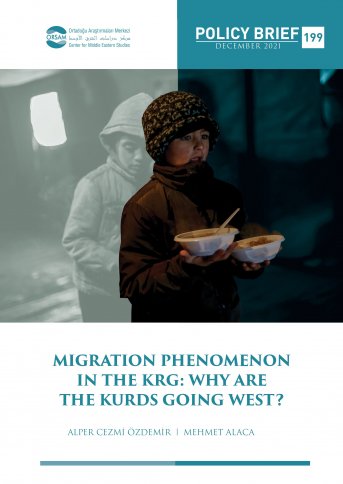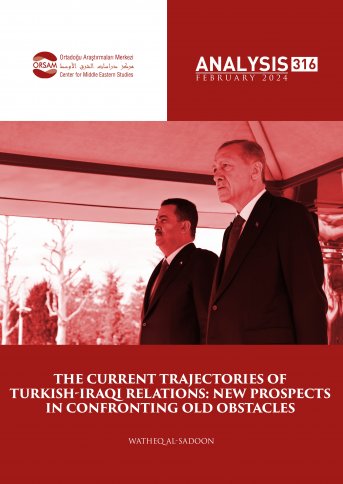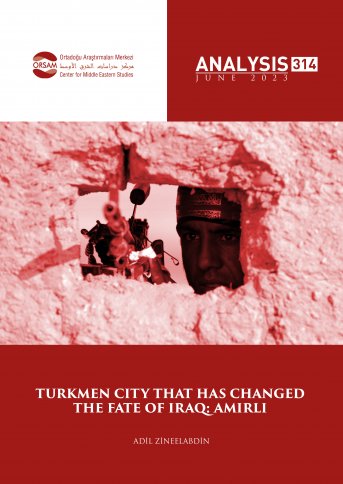
Migration Phenomenon in the KRG: Why are the Kurds going west?
The recent migrant crisis that emerged on the Belarus-Poland border embodies a risk that it could turn into an international crisis. While European countries are involved in the process, there are also rumors that Russia's foreign policy moves triggered the migrant crisis. In addition, it is quite remarkable that the Iraqi Kurds have come to the fore as the main actors in the crisis in question. As a matter of fact, the death of 27 immigrants from Iraq, Syria, Somalia, and Iran while trying to reach England from the coastal city of Dunkirk in France via an inflatable boat on November 24, 2021 has been on the international agenda. Sixteen of those who lost their lives when their boat capsized in the English Channel are Iraqi Kurds, and their identity was also confirmed by the Iraqi Kurdistan Regional Government (KRG).
The disaster in question occurred at the peak of the migration crisis that has been dragging on for months on the Belarus-European Union (EU) borders. Since August 2021, thousands of people from Iraq, Syria, and other Middle Eastern countries have been trying to immigrate to EU countries via Belarus. Migrants who tried to cross the EU borders faced greater risks as the weather conditions worsened due to the season, and at least 11 people, including a 14-year-old child, lost their lives on the Belarus-Poland border. KRG Spokesperson Jotiar Adil has been stranded at the EU borders since the beginning of the migrant influx. He claimed that 7-8 thousand of the remaining 16 to 17 thousand people were Iraqi Kurds.
Kurdish and other immigrants have been caught in the middle of an escalating geopolitical conflict as eastern EU states such as Poland, Lithuania, and Latvia have deployed police and security forces on Belarusian borders. EU leaders, who argue that the Belarusian government uses immigrants as a political tool to punish the EU, described the migrant crisis at the border as a part of the "hybrid war" waged by the Russian-Belarusian bloc against the EU, and started to approach Iraqi immigrants with an increasingly securitized approach
Local media outlets and unofficial institutions working on migration in the KRG indicate that an average of 32 thousand people have immigrated from the KRG since the beginning of 2020. While these figures encompass those who abandoned the region via irregular migration, the governments in Arbil and Baghdad do not provide any official data. In addition, it is observed that the number of Iraqi Kurds who migrated from the KRG or attempted to immigrate has increased since there have been media reports about dozens of Kurdish immigrants who died in the English Channel and on the Belarus-EU borders in recent months . In fact, many analyzes and discussions on the phenomenon of immigration from the KRG draw parallels to the massive migration movement that took place due to the bloody Kurdish civil war in the 1990s.
Increasing immigration from the KRG, which has a higher level of welfare compared to the rest of Iraq, can be seen as a signal for a change in some dynamics. In this study, which will examine the reasons for the motivation of the Kurds to migrate especially to the EU and the UK, it will also be argued that the sense of hopelessness about the future caused by the increasing discontent with the economic and political developments in the region encourages the Kurds to seek more welfare, security, and educational opportunities.







